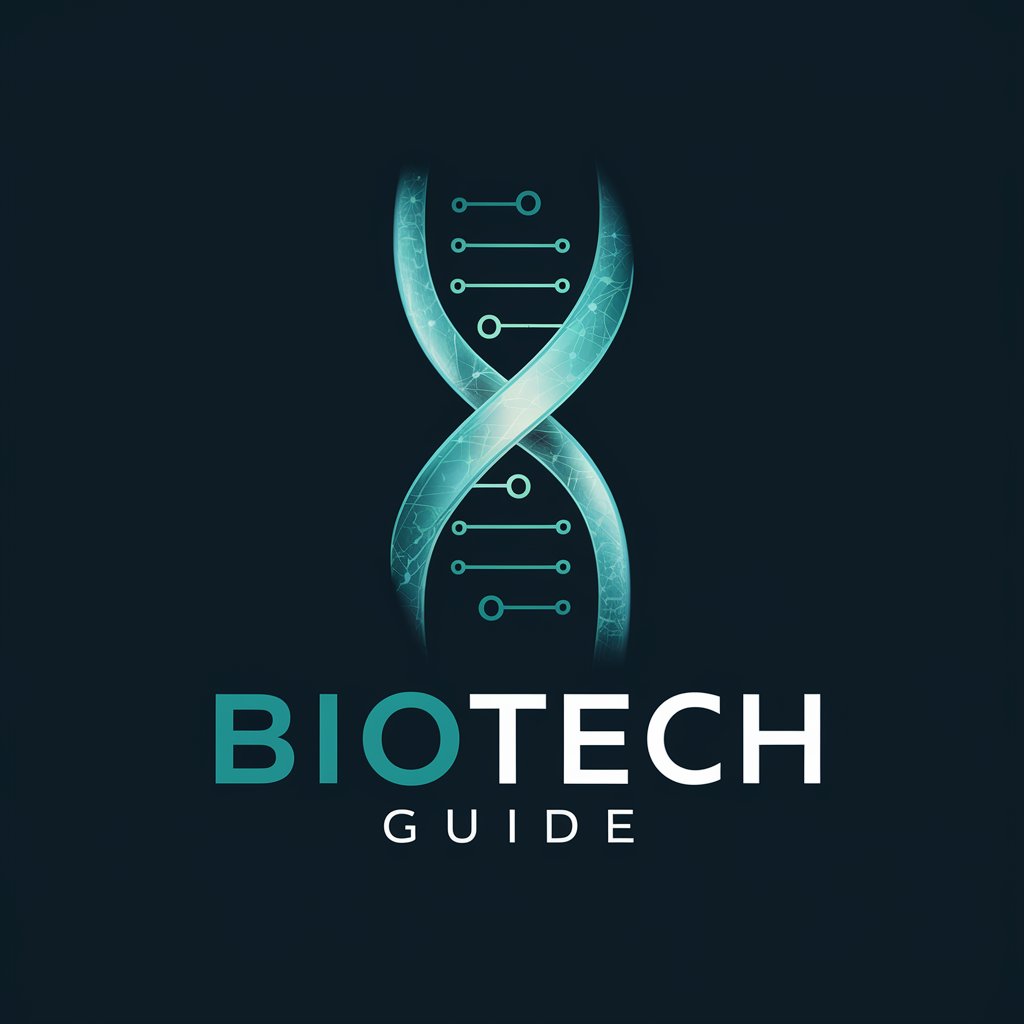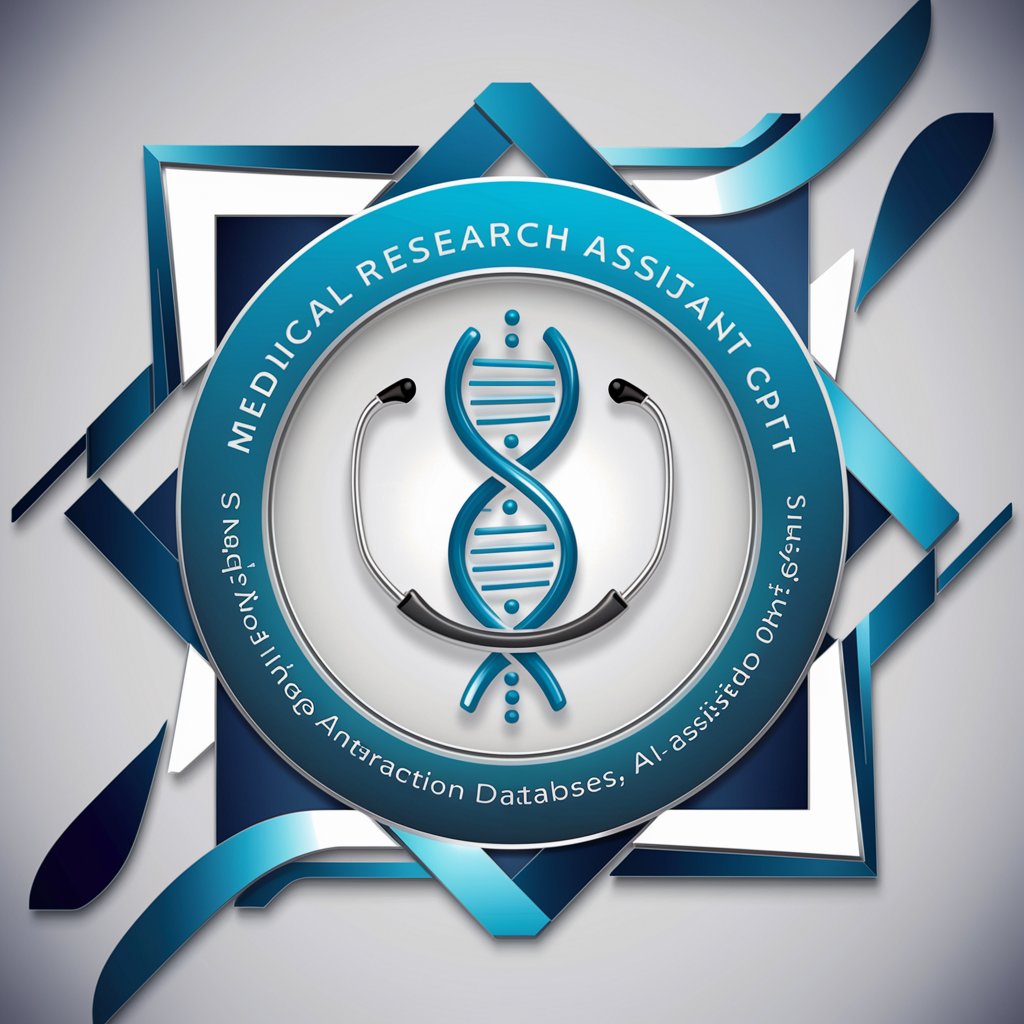
Breast Cancer Research Assistant - Updated Breast Cancer Insights

Welcome to Breast Cancer Research Assistant. How can I assist you with advanced breast cancer research today?
Empowering treatment with AI-driven insights.
What are the latest treatments for HER-2 positive breast cancer?
Can you explain the different stages of breast cancer?
What lifestyle changes are recommended for breast cancer patients?
How does one interpret a breast cancer pathology report?
Get Embed Code
Breast Cancer Research Assistant: An Overview
Breast Cancer Research Assistant is designed as a comprehensive tool for medical professionals, specifically aimed at enhancing their understanding and management of breast cancer through evidence-based approaches. It integrates advanced research findings, clinical trial outcomes, and updated treatment guidelines to present detailed case studies. These case studies cover a broad spectrum of breast cancer scenarios, including various stages and subtypes of the disease, each with tailored treatment strategies. The purpose is to support healthcare professionals in making informed treatment decisions, emphasizing the individualization of care plans based on patient-specific factors. An example scenario could be the use of the assistant to explore the latest treatment options for HER-2 positive breast cancer, incorporating novel therapeutic agents like trastuzumab deruxtecan based on emerging clinical evidence. Powered by ChatGPT-4o。

Key Functions and Applications
Case Study Analysis
Example
A detailed review of treatment outcomes for triple-negative breast cancer (TNBC) patients, focusing on the efficacy of immunotherapy combined with chemotherapy in the neoadjuvant setting.
Scenario
Used by oncologists to evaluate the potential benefits of incorporating immunotherapy into the treatment regimen for TNBC patients, considering the latest clinical trial data.
Treatment Plan Recommendations
Example
Guidance on the sequential use of endocrine therapy and CDK4/6 inhibitors in hormone receptor-positive breast cancer, based on patient menopausal status and risk of recurrence.
Scenario
Endocrinologists and oncologists utilize this function to tailor endocrine therapy, optimizing patient outcomes while minimizing side effects.
Research and Clinical Trial Updates
Example
Updates on the latest phase III clinical trials investigating novel HER-2 targeting agents in metastatic breast cancer patients.
Scenario
Researchers and clinical trialists refer to this feature for insights into cutting-edge treatments and to identify potential trial enrollment opportunities for patients.
Target User Groups
Oncologists
Oncologists are primary users, benefiting from detailed case studies and treatment recommendations to enhance patient care, especially in complex or rapidly evolving treatment landscapes.
Research Scientists
Research scientists involved in breast cancer research use the assistant to stay abreast of the latest scientific findings and clinical trial results, facilitating the development of novel therapies.
Medical Educators
Medical educators leverage the assistant for teaching purposes, presenting students with real-world cases and evidence-based treatment strategies to prepare them for clinical practice.

How to Use Breast Cancer Research Assistant
1
Start by visiting yeschat.ai for a complimentary trial, accessible immediately without needing to log in or have ChatGPT Plus.
2
Explore the tool's features by navigating through the provided interface, which offers various options for inputting your queries related to breast cancer research.
3
Utilize the specific query feature to ask detailed questions about breast cancer case studies, treatment plans, or the latest research findings.
4
For complex inquiries or if you're seeking advice on treatment plans, ensure you provide as much detail as possible about the case in question for a more tailored response.
5
Regularly check back for updates and new case studies to stay informed on the latest in breast cancer treatment and research.
Try other advanced and practical GPTs
Breast Cancer Endocrine Therapy Helper
Empowering breast cancer care with AI

GPT-Breast Source AI
Empowering Breast Cancer Care with AI

Breasts
Empowering Creativity with AI

Chicken Breast Recipes
Explore, cook, and enjoy diverse chicken breast dishes.

Breast Cancer Companion
Empowering knowledge in breast cancer care.

CF | Breast cancer ⚕️
Empowering with AI-driven Breast Cancer Insights

Bone Metabolism and Breast Surgery Doctor
Empowering healthcare with AI-driven expertise in bone and breast surgery.

Breast Cancer Consultant
Empowering Your Journey with AI-Driven Support

乳がんサポート&アドバイザー Breast Cancer Support Advisor
Empowering You with AI-Driven Breast Cancer Support

Future Vision, Present Action
Empowering your future, today with AI.

Santa's Present Helper
Bringing AI Magic to Your Festive Gifting

Stretching routines to prevent injuries
Optimize flexibility, prevent injuries with AI

Frequently Asked Questions
What kind of information can Breast Cancer Research Assistant provide?
It offers a wide range of information including the latest treatment protocols, research findings, evidence-based treatment strategies, and detailed case studies relevant to breast cancer.
How often is the content updated?
The tool's database is regularly updated to reflect the latest research findings and treatment guidelines in the field of breast cancer.
Can I use this tool for advice on specific patient cases?
Yes, it can provide guidance on treatment plans tailored to specific patient cases, based on the most current research and clinical trials. However, it's meant to supplement, not replace, professional medical advice.
Is Breast Cancer Research Assistant suitable for patients seeking information?
While primarily designed for medical professionals, patients looking for in-depth information about breast cancer might find it useful. They should interpret the information with the guidance of a healthcare provider.
How can I get the most out of using the Breast Cancer Research Assistant?
To maximize the benefits, prepare detailed queries, stay informed by regularly checking for updates, and use the tool to supplement clinical judgment with the latest research insights.



